The glacier can wait (part 1)
- EspeleoPatagonia

- Dec 23, 2021
- 7 min read
Updated: Jan 16, 2022
Discover Puerto Edén!
By Natalia Morata
If you are subscribed to our newsletter (in Spanish) you will know that we have not yet been able to go to the Témpanos glacier and that Centre Terre will carry out its expedition in January and February 2022. But we put a good face on the bad weather and it was worth it!
From "Cuerdas y Más, getting to know the ice glaciers" to "Cuerdas y Más, getting to know our environment".

Group photo after the big rescue drill; last day of field activities.
Photo: Leonardo Rivas
We had everything ready for our children's expedition to the Témpanos glacier, so when on 3 November, a few days before the official start of the children's expedition, the III Naval Zone of the Chilean Navy informed Natalia that, for operational reasons, it would not be possible to provide the requested support for the children's expedition, the Cuerdas y Más team, composed of Leonardo Rivas, Felipe Viera and Natalia Morata, were already clear that they would still travel to Puerto Eden.
The link between Centre Terre and the Speleological Association of Patagonia with the school and garden of Puerto Eden is the exploration and knowledge of the territory from the point of view of speleology.
Photos: Natalia Morata
In anticipation, weeks before, Romina Pizarro, head of the Miguel Montecinos school, and Natalia, coordinator of the "Cuerdas y Más" project, had already started to anticipate a scenario without a glacier, a plan B, something so necessary in Patagonia... Thus, Denis Montecinos, María Isabel Tonko and Paola Cortés, teachers at the Miguel Montecinos school and the alternative ethnic kindergarten La Centollita, Leonardo and Natalia organised an alternative programme of activities focused on exploring the immediate environment, that is, Puerto Eden. The results would take the form of a tourist brochure for the children of classes CM1 and CM2 of the Lorp school in the French Pyrenees, with whom the Eden schoolchildren began an exchange in December 2020.

The alternative programme adopted by the educational community maintained the main axes of the "Cuerdas y Más" project, focusing on activities around Puerto Eden. Namely:
- Discovering the environment in order to share it with people from other places.
- Working on values such as teamwork, collaboration, the spirit of self-improvement, feeling part of a community.
- Develop technical skills in handling ropes, exploring the environment safely and managing an emergency.
Despite not having caves nearby, the programme of activities continued to have caving as a common thread. Cave exploration starts with the exploration of the environment. Understanding the dynamics that occur on the surface (both natural and human) prepares us for those that occur underground or in challenging environments. Furthermore, caving is a discipline that touches on many and varied facets ranging from science and exploration (geology, biology, archaeology, paleoclimatology, etc.), through education (with entertaining pedagogical tools), to physical activity, not only from a purely sporting perspective, but also from the point of view of self-knowledge and the importance of my actions in a group or community dynamic.
Hanging posters in Puerto Eden to disseminate the calendar of activities designed for all the children who were in Puerto Eden during those days, whether or not they were enrolled in school and kindergarten.
Photos: Leonardo Rivas, Natalia Morata
Showing my environment to the world
Sometimes, the immediate environment is the most unknown. Discovering it, observing it and experiencing it in all its complexity is a journey that we decided to undertake with the entire educational community of Puerto Eden.
Puerto Eden is its walkways, its viewpoint, its docks and wooden boats, its sunsets after the rain, its smoky chimneys, its wooden houses with siding facades, its bay, its indelible indigenous hallmark...
Explosion of colours. Puerto Eden is the closest populated place to the Madre de Dios archipelago, which is about 9 hours sailing south. Centre Terre has been exploring the caves of the Patagonian archipelago for more than two decades.
Photos: Natalia Morata
Nestled in the middle of Chile's largest national park, the Bernardo O'Higgins, and belonging to the commune of Puerto Natales, Puerto Eden (one of the most isolated places in Chile) is also, for all its cultural and human heritage, the paradox of life in this wild and savage Patagonia where immediate sovereignty does not reside in its inhabitants. However, Puerto Eden, its people, is one of the few bastions that fight against those national and supranational management and administration structures, distant and impersonal, that have a uniform vision of nature and man's relationship with it, alien to the heritage of the native peoples and focused on the business of conservation.
To go with the kids through this complex and rich relationship between human beings and nature, that is, between themselves and their territory, has resulted in the two tourist brochures that they themselves produced after the field trips. But perhaps it has also awakened many other things on an individual and collective level in all those who participated... a complicity that cannot be put down on paper, but which unites us and makes us stronger...
"Alone, we are a drop;
Together, we are an ocean".
Route "Cuerdas y Más", making our tourist brochure
The children of Port Eden wanted to share with their companions in France a special, different destination: a route unknown even to some of the adults! To open a route, mark it out and describe it for others to visit requires a high degree of concentration, because you have to observe, orient yourself, calculate times and distances, know how to draw it on a map, describe the route, name it, highlight the most interesting landmarks, anticipate at which points along the route there might be confusion and capture it in an attractive way.
With this aim in mind, after each excursion, the children went on a pedagogical descent in the school according to the curricular programme, and they all made their impressions and information on paper together.
Learning how to write a tourist brochure.
Photos: Romina Pizarro, Natalia Morata
Paving the way to discover, explore and share
A new itinerary: route "Cuerdas y Más"
Photos: Romina Pizarro, Leonardo Rivas
The result - the specific tourist brochure of the route "Cuerdas y Más".
Route "Cuerdas y Más", a circuit to enjoy the flora and fauna of the area.
Excursion to the lake at Punta Lackawana
Most of the activities would not have been possible without the collaboration of the community. In a maritime environment, in the middle of the canals of western Patagonia, the approaches to the chosen destinations were sometimes by sea. We had the support of the boats Alisson, Albatros and Sur Oeste for the preparation of the activities and during the development of the activities. Thanks to Juan Ávila, Alexis Ávila, Aliro Vargas, Koté González and Esteban Chiguay for their patience and invaluable collaboration!
Located about 30 minutes' sail south of Puerto Eden village, Punta Lackawana gave us the opportunity to put into practice some of the techniques we had learnt in the previous days. On the way back, we visited the sei whale that had washed up dead in the bay a few days earlier.
Photos: Romina Pizarro, Felipe Viera, Juan Ávila, Leonardo Rivas, Koté González, Natalia Morata
Collective hike to Punta Eva
From Puerto Eden it is possible to go hiking. In addition to the "Cuerdas y Más" route, another nice hike is the Punta Eva hike, north of the village. This hike was open to the whole educational community and allowed us to share laughs and anecdotes during the 6.5km that separated the school (our starting point) from the small bay where the boats Albatros and Sur Oeste were waiting for us.
The excursion to Punta Eva, where the Eva River flows, was the first collective activity of the week. Bonds were forged and complicities were forged, essential for community life.
Photos: Leonardo Rivas, María Isabel Tonko, Romina Pizarro, Natalia Morata
Camp at Jetarkte
Getting to know one's immediate surroundings also means exchanging knowledge and experiences with its people. In Puerto Eden, members of two of Chile's original peoples live together: the Kawésqar and the Mapuche-Huilliches. For their descendants, school and kindergarten companions, delving deeper into each other's roots and their own can create strong bonds of interconnection that allow them to preserve the ancestral knowledge and interrelation with nature that they naturally treasure because they live where they do.
For this reason, our activities could not fail to include "experiencing" Jetarktétqal (Puerto Eden in Kawésqar), spending a night in one of the domes that will make up the future ethno-scientific station Jetarkte. With Juan Carlos Tonko, president of the Kawésqar Community living in Puerto Eden, we learned about the history of the occupation of the village by the Kawésqar people, and we finished setting up an attic where we built a fire to cook, keep warm and tell stories around the campfire. Juan Carlos also accompanied us in all the activities with his camera and, thanks to him, we have a record of everything that has been left in the school and the kindergarden.
To finish building and fitting out the at we organised ourselves into teams: some went to look for ferns to cover the floor and insulate us from the cold and humidity; others went to cut branches of coigüe to cover the upper hole where the smoke comes out; others went to look for water; the rest helped to finish the walls of the at.
Photos: Denis Montecinos, Natalia Morata, Romina Pizarro
Visit to Salamandra island o the garbage island
Wherever there are settlements, waste and rubbish are generated. Landfills are always a complex issue, reflecting, often frighteningly, our impact. Poor waste management, especially in a remote area, is something the people of Eden live with. Seeing one's own waste can help to raise awareness of how important it is to reduce the amount of waste; to motivate us to reuse and recycle. But this is not enough if the waste management chain does not work. The communal and regional administrations must fulfil their obligations and remove the waste in a controlled manner to avoid the contamination of the water and its species, which are the livelihood of the inhabitants of Puerto Eden.
Rubbish Island was a must on our itinerary. It gave a lot of food for thought and generated many feelings which the children captured in drawings on their return to school, before continuing with their plastic bottle recycling project.

We will soon share a video with the children's impressions of their visit to Salamandra island.
Photos: Rosita Vargas, Romina Pizarro, Natalia Morata
The result - the general tourist brochure
Come and discover Puerto Eden, the island of rain.... But don't forget to take your rubbish with you!
Activity registered in the International Year of Caves and Karst: http://iyck2021.org/index.php/events/#

The glacier can wait (part 2).
Caving without caves? --> read more
The glacier can wait... all the videos! --> watch them here!
Translated with www.DeepL.com/Translator (free version)

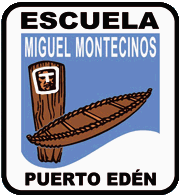



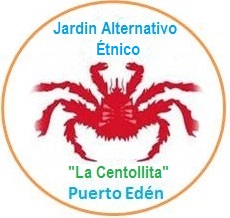






















































































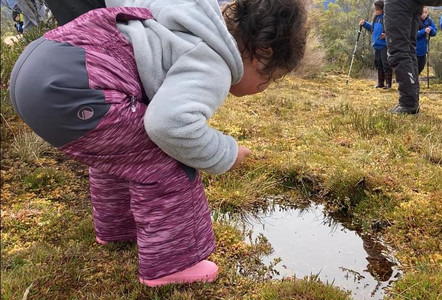





























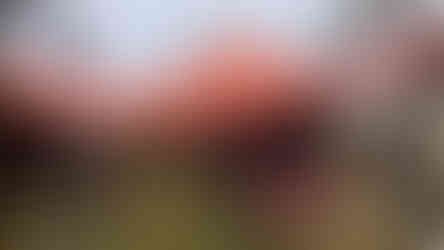































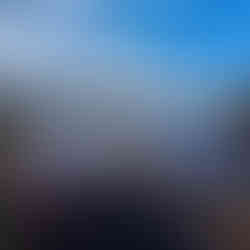





















































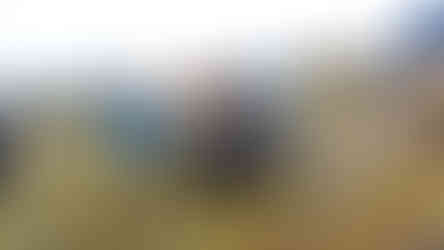






















































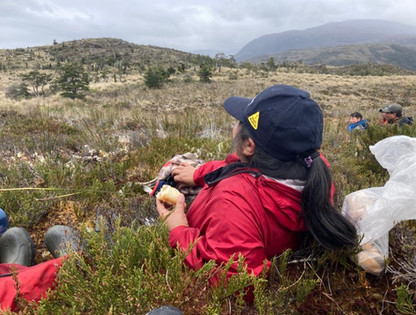

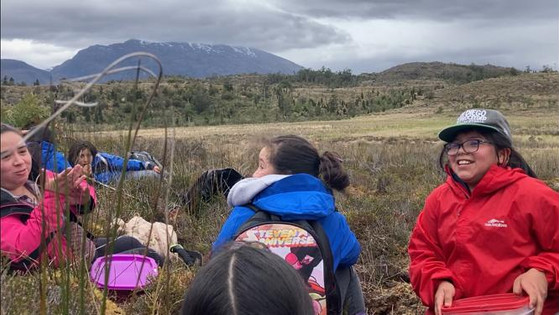






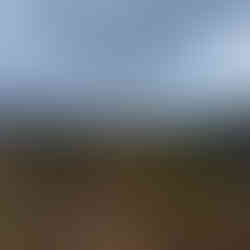














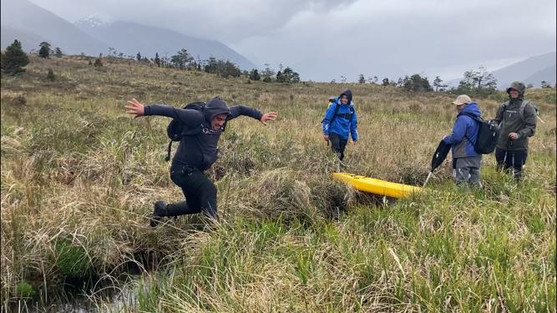













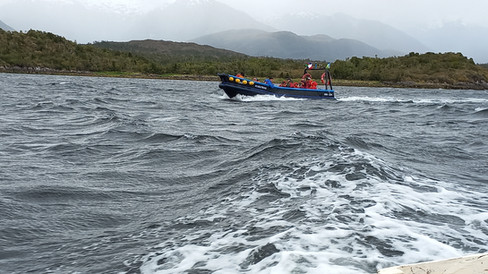







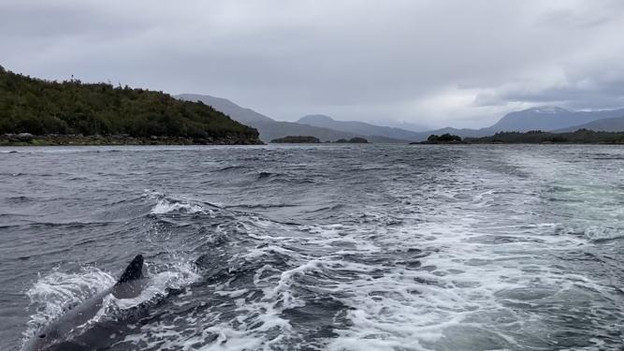





















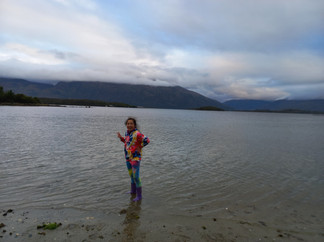



































































Comments